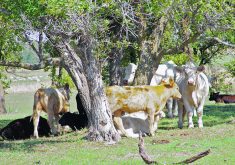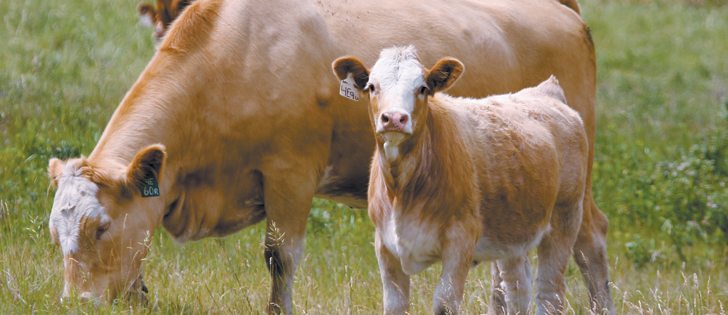Passing beef through a grinder would cause it to receive special consideration for labelling under new Health Canada rules
ASSINIBOIA, Sask. — The Canadian Cattlemen’s Association intends to mount a “full court press” against front-of-package labelling that would warn consumers about fat levels in ground beef.
President Reg Schellenberg said Health Canada’s proposed regulations would require ground beef to be labelled as high in saturated fat.
CCA wants an exemption, similar to other single-ingredient products such as some dairy products, vegetables and fruit.
“If this goes through, we will be the only country that has a warning label on ground beef,” Schellenberg told the Saskatchewan Stock Growers Association annual convention June 6. “We have to fight this tooth and nail.”
Read Also

New coal mine proposal met with old concerns
A smaller version of the previously rejected Grassy Mountain coal mine project in Crowsnest Pass is back on the table, and the Livingstone Landowners Group continues to voice concerns about the environmental risks.
Conservative agriculture critic John Barlow said the proposal doesn’t make sense, noting a bottle of Diet Coke won’t have a warning.
“You’re telling Canadian consumers, ‘Don’t eat ground beef. It’s unhealthy’,” he said during an address to the delegates. “One of the most affordable sources of iron and protein Canadians have (and) they’re now going to have a warning label on it.”
He said a roast in the meat case won’t be labelled but as soon as it goes through a grinder it would be.
Because the labels would be implemented through regulation, the government could adopt them at any time without public scrutiny at any time. Barlow said the opposition would be drawing attention to the proposal and fighting against it during the last few weeks of the Parliamentary sitting.
Both he and Schellenberg said the labels would make Canadian beef uncompetitive.
“The United States has already said this is an irritant under (Canada-United States-Mexico Agreement) CUSMA,” Barlow said.
Schellenberg added that the labels will give supporters of mandatory country-of-origin labelling what they need to make their case.
Since about half of Canadian beef is exported, the warning symbols would send negative messages to customers.
Barlow said while he didn’t expect to see labels in place before next year, the opposition would do everything it could to extend the implementation.
He said pushback from stakeholders would tell Health Canada that it has to change its plan.
The labels would increase costs to manufacturers and consumers and could encourage some American companies to pull out of Canada because they don’t want the cost of affixing Canadian labels, he said.
Schellenberg said everyone, from grassroots producers on up, needs to be involved in sending a message to Ottawa.
CCA issued a statement noting that Canadians eat about half of their calories from processed foods with few nutrients. Ground beef contains iron, zinc, vitamin B12 and other essential nutrients.
“FOP labelling of whole, single ingredient foods contradicts the foundational principles of healthy eating and will distract from the real priority (which is that) Canadians need to reduce their consumption of ultra-processed foods,” the statement said.
The organization noted there are legitimate fears about food security in the wake of the COVID-19 pandemic. There is also the issue of affordability; ground beef represents an affordable beef option even during increasing inflation.
CCA said new evidence has been shared with Health Canada that shows reductions in ground beef and ground pork consumption would make only a nominal impact on the overall intake of saturated fat while putting women and children, particularly, at risk of inadequate iron intake.
Other countries do have fat warning labels but have exempted ground beef based on its nutritious value.
“This is only going to confuse consumers,” Barlow said.


















